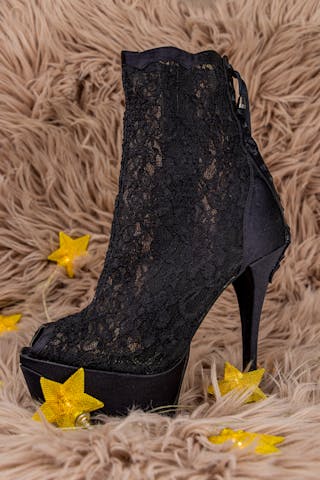It's no secret that bisexual women still face a great deal of stigma and discrimination, even within the LGBTQ+ community. However, what may come as a surprise to some is that this prejudice often extends beyond the queer community and is still prevalent among apparently straight people. Despite the progress that has been made in recent years in terms of LGBTQ+ rights and visibility, many apparently straight individuals still hold onto outdated and harmful beliefs about bisexual women, viewing them as confused, promiscuous, and incapable of being faithful in a relationship.
You may have heard some wild rumors about women who are attracted to both men and women. But let's set the record straight - these myths are just that, myths! Bisexual women are not confused or indecisive, they simply have the capacity to be attracted to people regardless of their gender. If you're interested in dating a bisexual woman, it's important to approach the relationship with an open mind and understanding. Check out Dating Tales for more tips on navigating the dating world with confidence and respect here.
The Harmful Stereotypes and Myths
If you're looking for a comparison between OurTime and SeekingArrangement, check out this informative article on Ad-Sex and make an informed decision before trying it out.
One of the most pervasive and damaging stereotypes about bisexual women is that they are inherently promiscuous and unable to commit to a monogamous relationship. This harmful myth is rooted in the false notion that bisexuality equates to a heightened sexual appetite and an inability to be satisfied by a single partner. This belief not only perpetuates harmful stereotypes about bisexual women, but it also dismisses and invalidates their capacity for genuine, loving, and committed relationships.
Explore the thrilling world of online BDSM experiences and unleash your desires with Cuckold Dating Sites.
Another common misconception is that bisexual women are simply "going through a phase" or are confused about their sexuality. This belief is rooted in the harmful notion that bisexuality is not a valid sexual orientation, but rather a temporary state of confusion or experimentation. This myth not only undermines the very real and legitimate experiences of bisexual individuals, but it also dismisses the validity of their identities and perpetuates the erasure of bisexuality within the larger LGBTQ+ community.
Learn how to watch porn on Meta Quest 2 and enhance your virtual reality experience.
The Impact on Bisexual Women
The perpetuation of these harmful stereotypes and myths has a significant impact on the mental and emotional well-being of bisexual women. Not only do they face discrimination and prejudice from society at large, but they also experience invalidation and erasure within the very communities that are supposed to offer them support and acceptance. This can lead to feelings of isolation, self-doubt, and a lack of belonging, as well as increased rates of anxiety, depression, and other mental health issues.
In addition, the belief that bisexual women are inherently promiscuous can lead to increased scrutiny and judgment within their relationships. They may be unfairly labeled as untrustworthy or disloyal, and their partners may harbor unfounded fears about their fidelity. This can create additional challenges in forming and maintaining healthy, loving, and lasting relationships.
Changing the Narrative
It is crucial for apparently straight individuals to challenge and interrogate their own beliefs and attitudes towards bisexual women. By educating themselves about the realities of bisexuality and actively seeking to understand and validate the experiences of bisexual individuals, apparently straight people can contribute to creating a more inclusive and supportive society for all members of the LGBTQ+ community.
Furthermore, it is essential for dating platforms and communities to actively combat the perpetuation of harmful stereotypes and myths about bisexual women. This can be achieved through the implementation of inclusive policies, the promotion of education and awareness about bisexuality, and the creation of safe and welcoming spaces for bisexual individuals to connect and form meaningful relationships.
In conclusion, the harmful stereotypes and myths about bisexual women that persist within apparently straight communities have a significant impact on the mental and emotional well-being of bisexual individuals. It is crucial for apparently straight individuals to challenge these beliefs and actively work towards creating a more inclusive and supportive society for all members of the LGBTQ+ community. By doing so, we can help to create a world where all individuals, regardless of their sexual orientation, can feel seen, heard, and valued in their relationships.
- https://sex-chat.ua-sex.com/posts/sex-for-the-story-tiktoks-wildest-stars-reveal-all/
- https://dating-services.fu-direct.net/posts/are-we-all-matching-with-bots-on-dating-apps-now/
- https://datingguide.themountaintopplay.com/posts/fetish-dating-apps-2022-bdsm-kink-and-sexpositive-dating-apps/
- https://fuck-apps.ua-sex.com/posts/my-best-sex-ever-was-a-quickie-with-a-complete-stranger/
- https://online-sex.thehottieandthenottie.com/posts/porn-effects-on-women-women-who-watch-porn-have-better-sex/
- https://fuck-apps.campsupernow.com/posts/10-women-on-what-its-really-like-to-date-a-bisexual-man/
- https://hookup-blog.thehottieandthenottie.com/posts/the-19-best-bondara-sex-toys-for-2024/
- https://matchmaker-website.campsupernow.com/posts/what-does-it-mean-to-be-fraysexual/
- https://dating-app.getweps.com/posts/fetish-dating-apps-2022-bdsm-kink-and-sexpositive-dating-apps/
- https://online-dating.thehottieandthenottie.com/posts/5-facetoface-sex-positions/
- https://chatting.campsupernow.com/posts/my-best-sex-ever-was-with-my-exs-best-friend/
- https://online-hookup.timebombrecordings.com/posts/my-best-sex-ever-was-with-a-married-couple/
- https://free-dating-website.campsupernow.com/posts/new-dating-app-bumble-forces-women-to-make-the-first-move/
- https://sex-app.themountaintopplay.com/posts/covid-sex-risks-what-would-you-risk-to-have-sex-during-the-pandemic/
